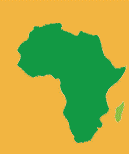Stakeholders renew call for good governance to check emigration of Nigerian youths

As hostilities against foreigners in South Africa continue,Nigerian government has been advised to create conducive environment for its citizens through good governance to reduce the number of Nigerians who are outside the shores of the nation.
A Sociologist, Dr. Franca Attoh gave the advice at a media engagement on migration reporting held in Lagos to build the capacities of journalists in investigating migration issues.
Dr.Attoh who is an Associate Professor at the University of Lagos noted that unemployment, poor economic condition and insecurity were major reasons some Nigerians chose to live outside their father’s land.
She cautioned the Federal government not to be carried away by the growing remittances from Nigerians abroad, which had become a major source of revenue, saying, this may spell a doom for the nation in the nearest future.
Dr. Attoh argued that in the present situation whereby many young Nigerian intellectuals and professionals are migrating to a better space would result into under development of Nigeria, if not checked on time.
She said “for instance it takes ten years to produce a qualified medical doctor in Nigeria” and if such doctor leave for another place, it will take another ten years to reproduce him or her.
The Sociologist was of the opinion that most of the Nigerians in diaspora would love to come back home if there are facilities for a good standard of living and the environment is conductive as where they are.
She also identified a trend which she termed as ‘brain waste’ whereby, some highly skilled professionals and young intellectuals who migrated to other countries were wasting away; doing menial jobs that were available to them in their new residence, instead of putting their skills into use.
She said that, this had brought more discontents to the countries of origin and destination and lack of fulfilment as well as disillusions on the part of the migrants.
In the same vein, a seasoned journalist and the Programme Director of Daily Trust Foundation Dr. Theophilus Abbah observed that, it was after some news media described what they discovered in Libya as ‘slavery’ that the attention of the world was drawn to the new level of human trafficking and the horrific experiences of migrants seeking for greener pastures.
Dr. Abbah explained that there were many issues around migration which needed to be unravelled that are expected to ultimately lead to a reduction in the number of victims of human traffickers and xenophobic attacks and charged the media to take up the challenge.
He added that, a better treatment of migration matters would stimulate better policies on the subject matter and also pressurize the stakeholders to play their roles, effectively.
A Representative of UNESCO, at the training, Shola Okpodu explained that the organisation supported the media engagement programme on migration reporting, in order to raise awareness about the dangers and risks associated with irregular migration especially the smuggling in West Africa and to Europe.
The media engagement was organized by the Wole Soyinka Centre for Investigative Journalism with the support of the UNESCO to ensure that most vulnerable people particularly the youths, have access to relevant information and knowledge on the dangers and benefits of migration.







